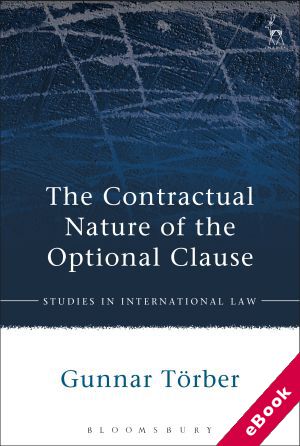
The device(s) you use to access the eBook content must be authorized with an Adobe ID before you download the product otherwise it will fail to register correctly.
For further information see https://www.wildy.com/ebook-formats
Once the order is confirmed an automated e-mail will be sent to you to allow you to download the eBook.
All eBooks are supplied firm sale and cannot be returned. If you believe there is a fault with your eBook then contact us on ebooks@wildy.com and we will help in resolving the issue. This does not affect your statutory rights.
The International Law Commission’s Guiding Principles for Unilateral Declarations and its Guide to Practice on Reservations to Treaties are among the recent developments in international law. These developments support a new assessment on how optional clauses (eg Art 62(1) of the American Convention on Human Rights) and especially the Optional Clause (Art 36(2) of the Statute of the International Court of Justice (ICJ)) can be characterised and treated. The question is in how far optional clauses and the respective declarations can be considered a multilateral treaty or a bundle of unilateral declarations and to what extent one of the corresponding regimes applies.
Based on inter alia on the jurisprudence of the Permanent Court of International Justice and the ICJ on the Optional Clause, but also on the relevant jurisprudence of the Inter-American Court of Human Rights and the European Court of Human Rights and the General Comments of the United Nations Human Rights Committee, this book provides a comprehensive assessment of all legal issues regarding the Optional Clause and also optional clauses in general. The book deals with the making of Optional Clause declarations, the interpretation of such declarations and reservations made to the declarations as well as the withdrawal or amendment of declarations.